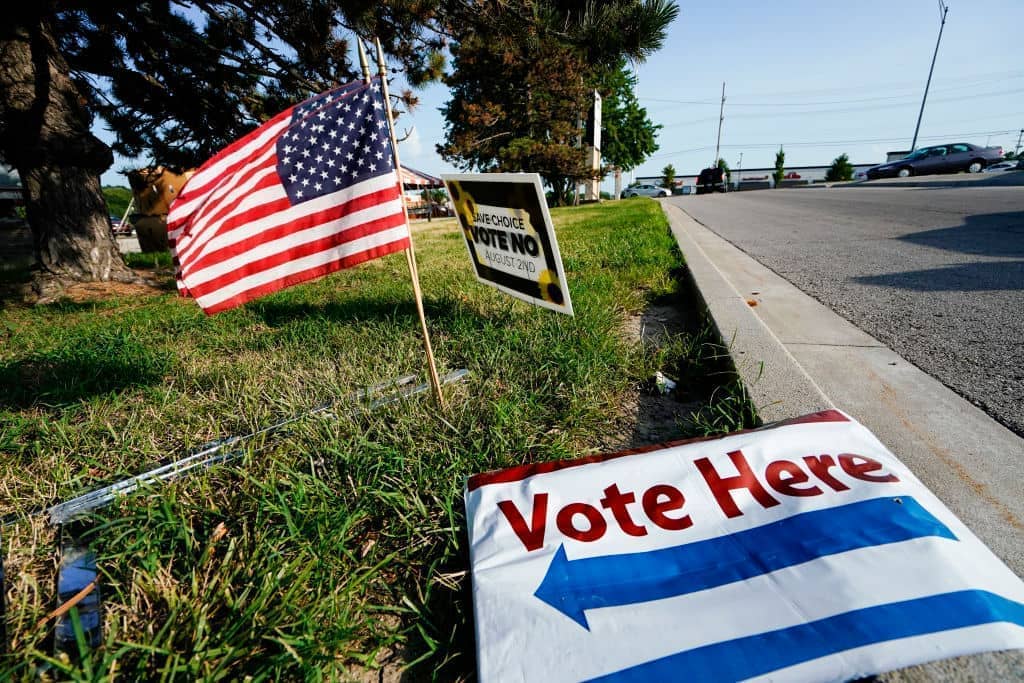In 2020, 56.2 per cent of Kansas voters cast their ballot for Donald Trump – 15 percentage points in his favour. Yesterday, many of these same voters returned to the polling stations. This time, more than 58 per cent of voters cast their ballot in favour of retaining the right to an abortion in the state’s constitution.
This overwhelming victory for abortion rights in a comfortably red state is providing insight into how the abortion debate will play out State-side in the latter half of the year. It’s not simply the result, but the margin by which Kansans voted in favour of abortion rights that is notable. This suggests the average American not only cares about the issue (the number of votes cast in this primary election which included the referendum on the abortion amendment ‘more than double those cast in the 2018 primary’, according to The Kansas City Star), but is in favour of retaining abortion rights.
This suggests the average American not only cares about the issue, but is in favour of retaining abortion rights
This is in line with polling around the right to access abortion, which shows majority support in America, and goes as high as 67 per cent support to access in the first trimester. In Kansas, the limits around abortion will still be up for debate – the state currently sets the limit at 22 weeks, unless the life of the mother is at risk (slightly lower than the UK, much higher than Germany) – but rejection of the amendment has stopped the pathway to banning the practice outright in the state.
There are arguably two winners from the Kansas result. The first and most obvious are the female residents of Kansas, who have broadly secured their right to the procedure. This will have the knock-on effect of giving hope to women in other states where a similar question is set to be on the ballot in the midterm elections, including Michigan, Vermont and most notably Kentucky.
The second, perhaps less obvious winner, is the Supreme Court (and advocates of stricter constitutional interpretation) – which said in its majority opinion when it overturned Roe v Wade that ‘it is time to heed the Constitution and return the issue of abortion to the people’s elected representatives.’ The vote in Kansas was exactly what the court was talking about: it’s decision was not intentionally designed to end abortion rights (though no doubt it increased the risk in many states), but to return the decision to legislators, who are directly accountable to the public. The Kansas vote is now a primary example of how the Court’s ruling does not necessarily mean less access to abortion, but can actually enshrine the right on the state level through democratic consent.
The vote should motivate Joe Biden and his (only just) Democrat-held Congress to kick into gear; there are enough Republicans in the Senate that are open-minded on the issue that there may well be scope to secure legislation on the federal level – say, covering the right to access abortion in the first term. Yet there’s still no evidence the Biden administration is going to take action, still viewing the abortion debate in primarily political terms (ie. to win votes in the midterms) rather than an urgent issue for women’s health.
But the clear loser of yesterday’s vote are the Republican politicians who viewed the Roe ruling as opportunity to push abortion restrictions much further. ‘We must not rest and must not relent until the sanctity of life is restored to the centre of American law in every state in the land,’ said former vice president Mike Pence after the court’s verdict. This set into motion a discovery process, as we were soon to learn, state-by-state, if Americans agreed with his assessment: that abortion should be taken off the table completely. The Kansas result suggests they don’t. This could become a very difficult talking point leading up to the midterms in November, where Republicans have an edge on the economy, if pressure builds from the fringes of the party for candidates to take increasingly radical stances on abortion.







Comments